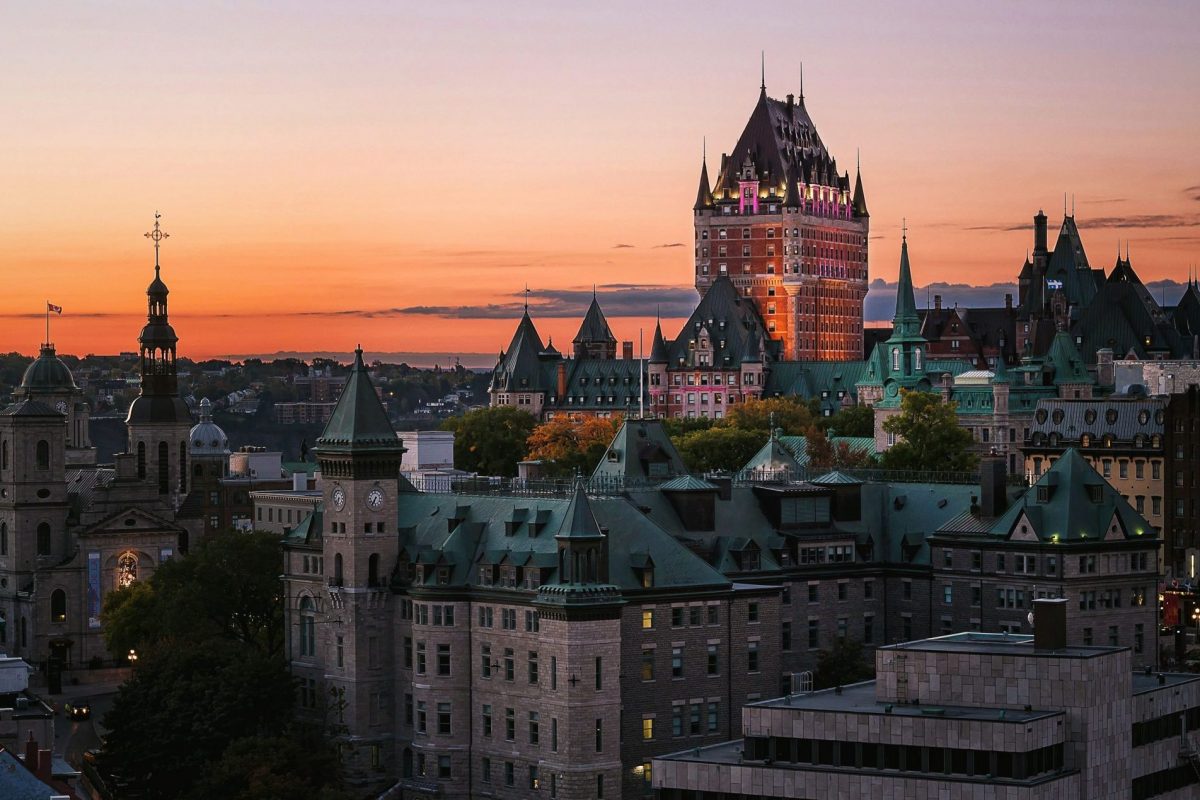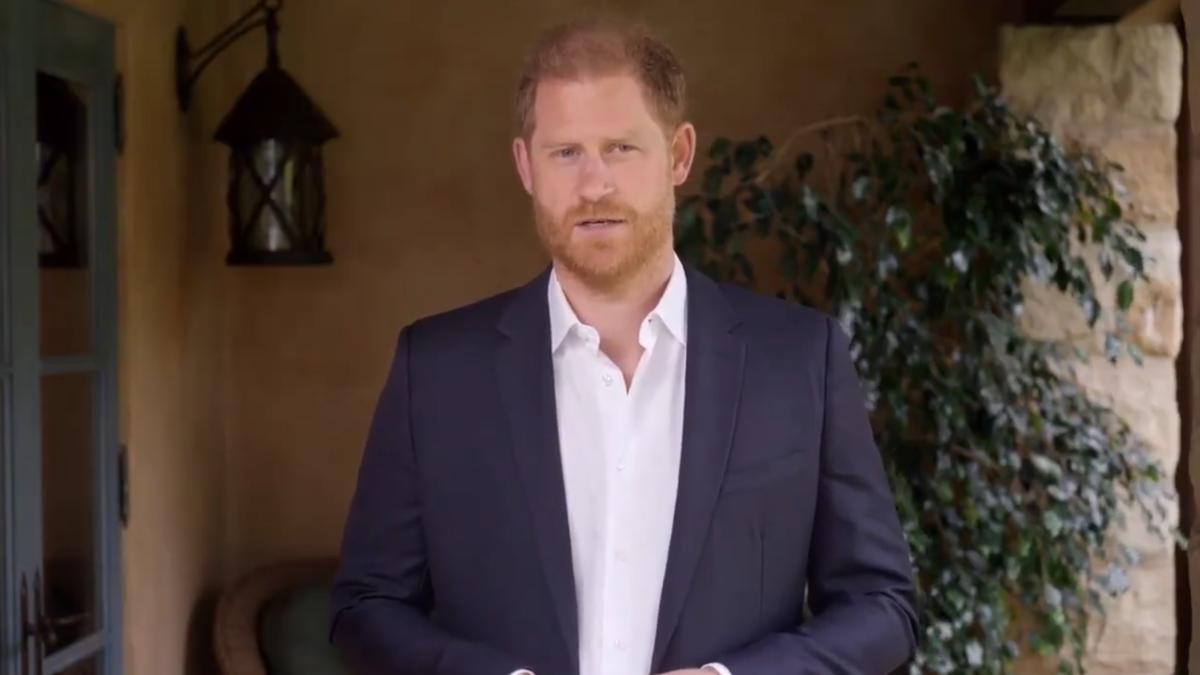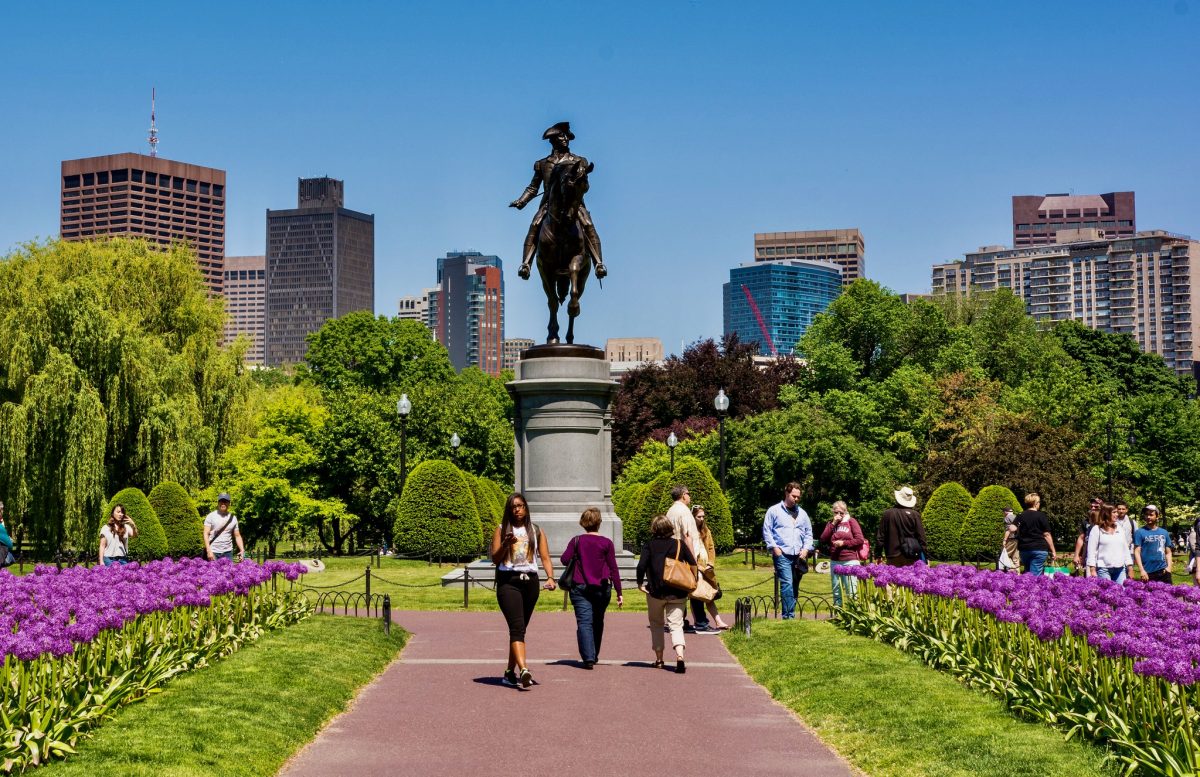Meet the Québec City Scientists Who Are Changing How We Think About Gold

Skift Take
This sponsored content was created in collaboration with a Skift partner.
Many people have taken Covid-19 tests in recent years, but few people know that the tests function by using gold nanoparticles to detect the virus and spikes of the many coronavirus variants.
“Gold is everywhere,” explained Marc-André Fortin, professor of biomedical engineering at the Université Laval in Québec City. Through his focus on biomaterials, especially for cancer treatment, Fortin is searching for new ways to apply gold to help doctors use radiation more effectively and safely.
His colleague Élodie Boisselier, professor of ophthalmology at Université Laval’s faculty of medicine, also focuses on how gold can help patients. Her team is developing gold-enhanced eye drops that help slow progressive eye diseases without injections.
Fortin and Boisselier are also researchers at Centre Hospitalier Universitaire (CHU) de Québec-Université Laval, one of the major academic research hospitals in Québec City, and are part of the burgeoning biomedical engineering sector in this thriving and sophisticated city.
Gold for Better Medical Treatment
“I was trained to use radioisotopes and radioactive materials for medical applications very early in my academic years. I could see not only their dangers but also how they could be applied positively in medicine,” said Fortin.
Fortin finds ways to make these isotopes less damaging to cancer patients by using gold to significantly reduce the amount of radiation necessary in such treatments. This is particularly critical when treating cancer of the eye.
Boisselier is also working with gold nanoparticles to help preserve patients’ eyesight and to minimize the number of surgeries needed to treat degenerative eye diseases. She and a research team of several students apply chemistry, biochemistry, and biophysics to improve our understanding of the eye’s physiological and pathological mechanisms and help further eye disease treatments.
For example, they’re developing new eyedrops that include gold nanoparticles and other types of molecules to create formulations that can replace the need for regular eye injections in patients with age-related macular degeneration (AMD), a common eye disease.
A “Buoyant” Place to Live and Work
Québec City is full of biomedical innovations like the ones Fortin and Boisselier work on every day, creating an exciting professional atmosphere.
“The medical field is buoyant in Québec City,” said Fortin. “We have a highly diversified economy with a low unemployment rate, and high technology is one of the key fields.”
Scientists enjoy calling the city home and are eager to host their colleagues from around the world. Business events flock to the city, eager to leverage the city's extensive knowledge capital to enhance their event's agenda by hearing from eminent keynote speakers, through tours of Quebec City's state-of-the-art facilities and engaging in enlightening business-to-business exchanges.
Québec is easily accessible, with the U.S. border about 100 miles away and direct flights from many international destinations. Outside of the conference room, attendees appreciate experiencing a thriving French Canadian cultural hub that is home to gourmet restaurants and amazing accommodation, including the famed Château Frontenac hotel.
Thanks in part to Fortin and Boisselier’s advocacy, the Gold International Conference, which happens every third year in cities around the world, was held in July in the Québec City Convention Centre (Centre des congrès de Québec). The conference brought together experts who use gold as a high-technology material — not just in medicine, but also for energy catalysis, electrochemistry, plasmonics, optics energy, and other areas. Fortin and Boisselier knew the conference would spark cross-disciplinary collaboration that can advance their work on medical applications.
Québec City’s professional synergy, urban setting, and natural environment also make it an attractive place to visit and live. The European-tinged city is full of history, and the larger region boasts opportunities for skiing, sailing, hiking, and many other activities. Visitors can experience French Canadian culture in a variety of ways, such as visiting a sugar shack, attending the New France Festival, or checking out the Maison de la littérature historical site, a public library in Old Québec with books, exhibits, and literary events, located in the former Wesley Church which was built in 1848.
Fortin and Boisselier find Québec a wonderful place not only to work but also to raise their families. “I fell in love with the city, the people, and the way we do our job in a very prolific environment,” said Boisselier. “I definitely recommend the experience of spending time in Québec City and its surroundings to everyone.”
For more information about Destination Canada’s work within priority economic sectors and how they can benefit business events, visit Destination Canada Business Events.
This content was created collaboratively by Destination Canada Business Events and Skift’s branded content studio, SkiftX.




